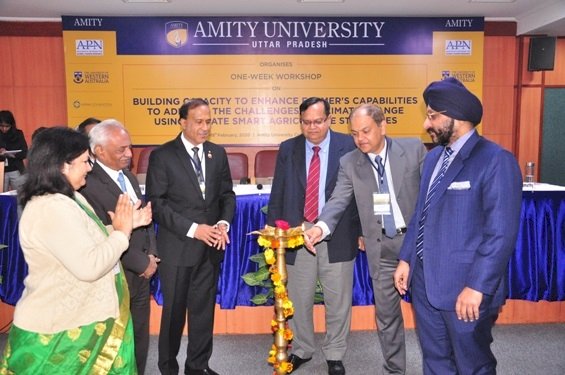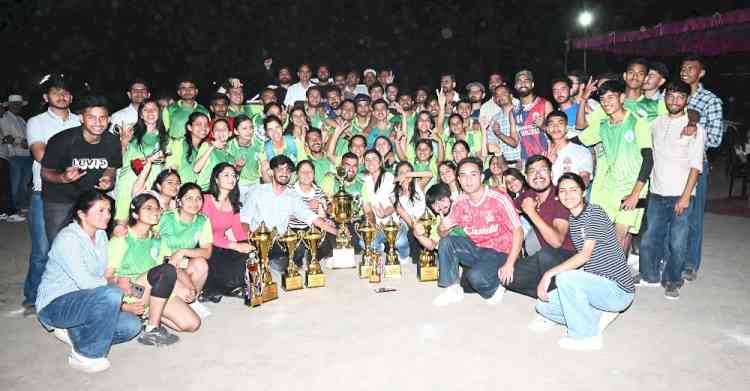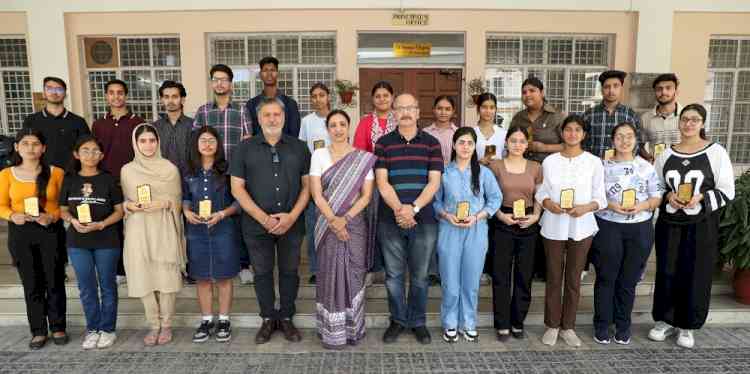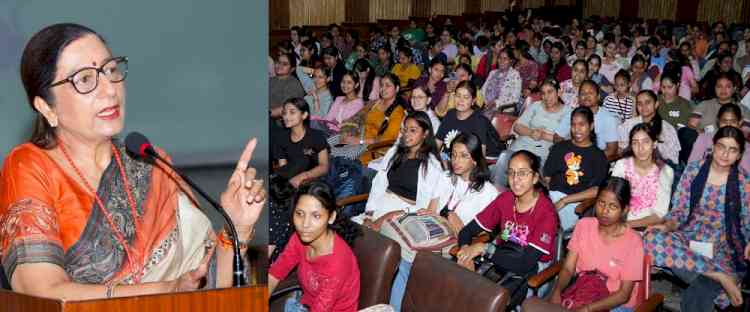Mitigation and adaptation must for farmers to fight climate change
Speak experts at international training programme organized at Amity University

Noida: Citing the drastic climatic changes across the globe including the devastating bush fires in Australia, floods in US and UK and the substantial rise in the Antarctic temperatures, an International Training Programme Workshop on “Climate Smart Agriculture Practices to Enhance Farmer's Capabilities to Address the Challenges of Climate Change using Climate Smart Agriculture Strategies” was inaugurated at Amity University, Noida. The six-day workshop is being organized under the international grant received from Asia Pacific Network (APN) and has University of Western Australia, University of Afghanistan and Kernel Bangladesh as partners.
Organized by Amity Food & Agriculture Foundation (AFAF), experts present shared how climate change was a reality that was staring at the world and causing drastic changes in agricultural productivity across the globe.
Citing actions of developed nations that have put the entire world into jeopardy, Mr. J.R. Bhatt, Advisor (Climate Change), Ministry of Environment, Forest and Climate Change, Government of India stated how cumulative emissions are the cause of our problems today. “Climate change is the reluctance of some developed nations to take mitigative actions, thirsting upon the developing world the need for adaptation. To tackle his issue, India as a nation is developing in a neat and clean manner as we have retired 170 old and inefficient thermal power plants. We are also burning coal more responsibly and looking at cleaner forms of energy for our future,” shared Mr. Bhatt.
Dr. Ajay Raghava, Deputy Director, Ministry of Environment, Forest and Climate Change, Government of India congratulated Amity University in choosing an extremely relevant topic for the programme and taking forward an important agenda of the government. “Climate abrasions are happening all over the world with even Antarctica recording a high of 18 degrees of temperature a day before. There are different aspects of climate change on different parameters which are impacting different ecosystems,” shared Dr. Raghava. He further stated how agriculture which still contributes 16% -17% of the GDP and is extremely sensitive to temperature changes and rainfall patterns, will have an adverse effect on the consumers with climate change. He also stated how partners like Amity should take the initiative and impart knowledge about climate change and measures to tackle it to villages in the country and to the farmers in the language they understand. “Although as a developing country we are not supposed to have mitigation targets but a number of good initiatives and steps taken by the government have resulted in the reduction of emission intensity of the Indian GDP by around 21% between 2005 and 2014. However we still have a long way to go,” shared Dr. Raghava.
Honorary Professorship was conferred upon Prof. Kadambot Siddique, Prof. of Agriculture, Chair & Director, Institute of Agriculture, University of Western Australia, Perth. “If you do nothing in India, by 2050 about 27 percentage of the production will decline because if you look at the dry land system in India, irrigation which is coming from all the rivers are going to have significant impact. So both mitigation and adaptation strategies are important. India is doing a wonderful job in this direction, but there is need to do more. Climate change is happening and what we need is adaptability,” shared Prof. Siddique.
Dr. Nutan Kaushik, Director General, AFAF, Amity University, Noida shared the imminent need to find solutions to tackle climate change. “Agriculture is getting severely impacted with climate change causing damaged and reduced crop produce owing to sudden shifts in temperature. Farmers need to adapt to climate change to survive,” shared Dr. Kaushik. She also cited the recent locust attacks on produce in east Africa, west and South Asia whose cause has been identified as change in cyclonic patterns over the Arabian Sea that has caused widespread damage. She also shared how a farmer training manual will be prepared post this week-long workshop for their benefit.


 cityairnews
cityairnews 










